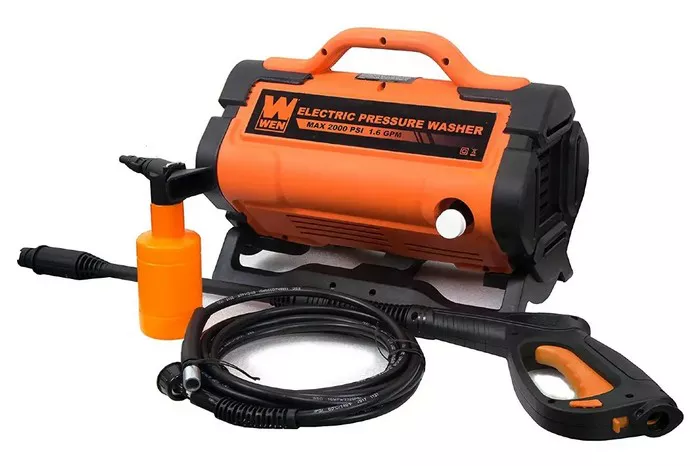In the realm of outdoor cleaning tools, pressure washers stand out as powerful allies in battling grime and dirt. Yet, amidst their efficiency and effectiveness, users often wonder about the potential risks of rain exposure on these machines. Will rain damage a pressure washer? This article delves into this query, addressing user concerns and providing comprehensive guidance on safeguarding pressure washers against the elements.
Durability of Different Types of Pressure Washers
The resilience of pressure washers against rain largely hinges on their type. Gas and electric pressure washers, the two primary categories, exhibit varying degrees of water resistance. Gas-powered units typically boast a higher level of durability in wet conditions compared to their electric counterparts. The enclosed design of gas pressure washers, coupled with their robust construction, renders them more impervious to moisture infiltration. Conversely, electric pressure washers, housing sensitive electrical components, demand more cautious handling in rainy environments.
Safety Precautions in Wet Conditions
When operating a pressure washer in wet conditions, safety should always take precedence. Users must exercise utmost caution, especially during thunderstorms or when rain intensifies. It’s advisable to refrain from using pressure washers altogether during such adverse weather conditions to mitigate the risk of electric shock or machine malfunction.
Weather Severity Considerations
While light rain might not pose an immediate threat to pressure washers, it’s essential to exercise prudence. In fact, light rain can even facilitate the cleaning process by aiding in the rinsing of surfaces. However, as precipitation intensifies, the risks escalate. Heavy rain can infiltrate the pressure washer’s engine and electrical components, potentially causing damage and compromising performance.
Protective Measures to Safeguard Your Pressure Washer
To shield pressure washers from rain-induced harm, implementing protective measures is imperative. Covering the machine with a waterproof tarp or utilizing specialized pressure washer covers can offer substantial protection against moisture ingress. Additionally, positioning the pressure washer under a shelter or within a garage when not in use can significantly extend its lifespan.
Understanding IP Ratings and Water Resistance
IP (Ingress Protection) ratings serve as a reliable indicator of a pressure washer’s resistance to water and solid particles. These standardized ratings provide valuable insights into a machine’s suitability for outdoor use, particularly in inclement weather conditions. Users can typically find IP rating information in the product specifications or user manual of specific pressure washer models.
Maintenance and Storage Practices
Maintaining pressure washers in optimal condition necessitates diligent care and proper storage practices. After each use, thoroughly dry the machine to prevent moisture buildup and corrosion. Regular inspection of seals, gaskets, and electrical connections can preemptively identify any signs of water damage. Storing the pressure washer in a dry, well-ventilated area away from direct exposure to rain further mitigates the risk of deterioration.
Adhering to Manufacturer’s Guidelines
Above all, adherence to the manufacturer’s guidelines is paramount in safeguarding pressure washers against rain damage. Manufacturers provide comprehensive instructions regarding the appropriate usage, maintenance, and storage of their products, tailored to ensure maximum longevity and performance. Users should meticulously follow these recommendations to uphold warranty coverage and safeguard their investment.
Conclusion
In conclusion, while rain can potentially jeopardize the integrity of pressure washers, proactive measures can effectively mitigate these risks. By understanding the differences in water resistance among pressure washer types, implementing protective measures, and adhering to safety protocols and manufacturer guidelines, users can prolong the lifespan of their pressure washers and optimize their cleaning endeavors even amidst wet conditions.

